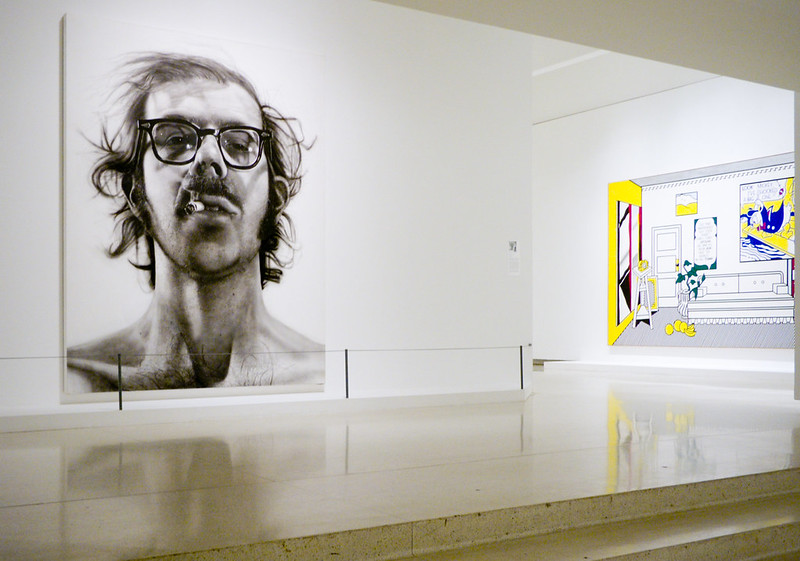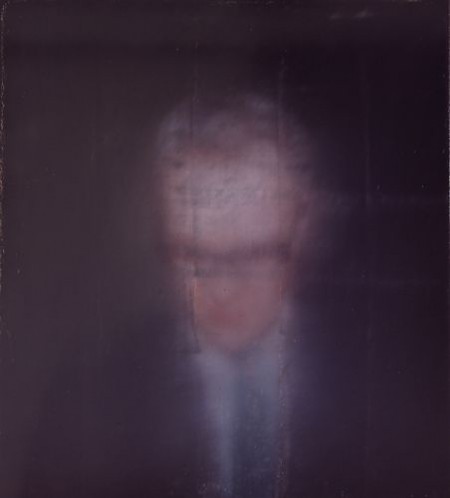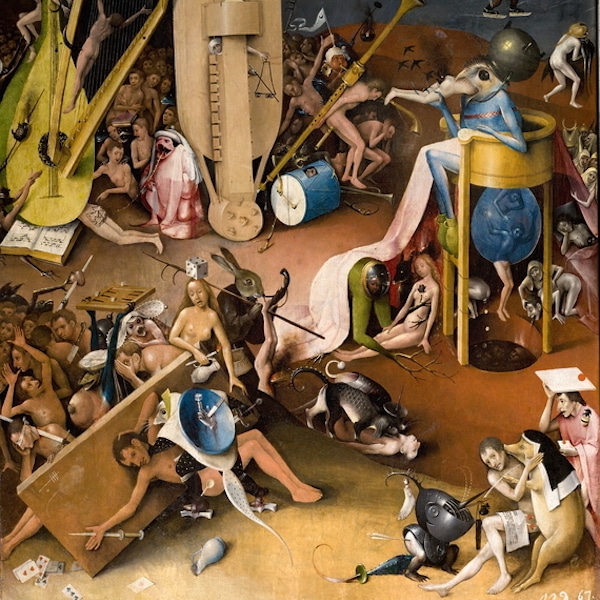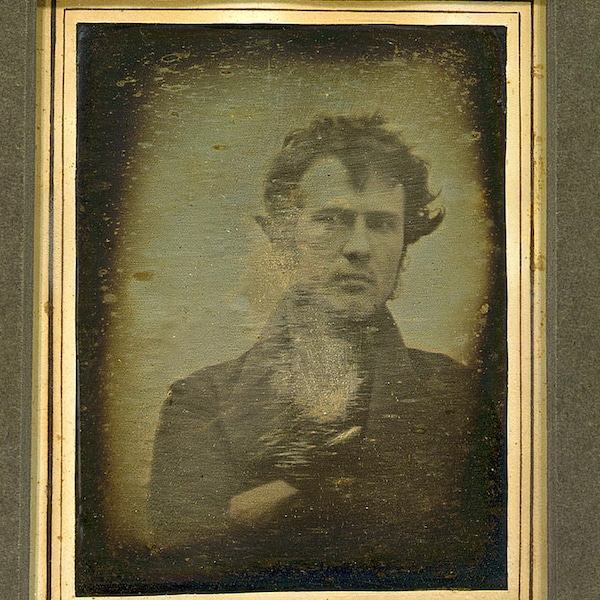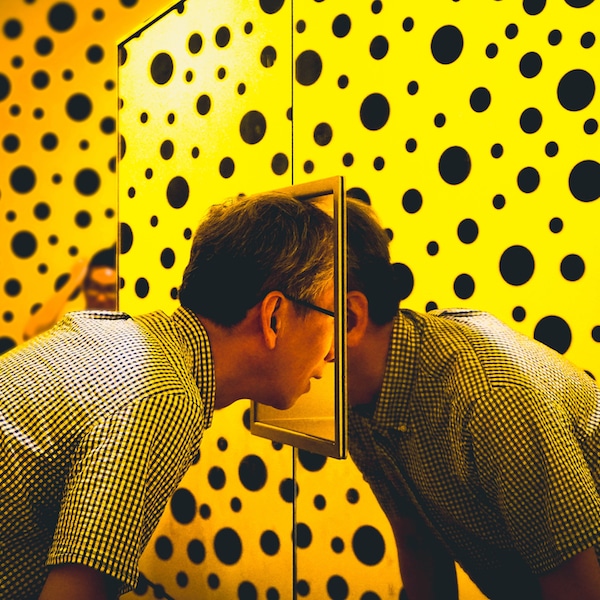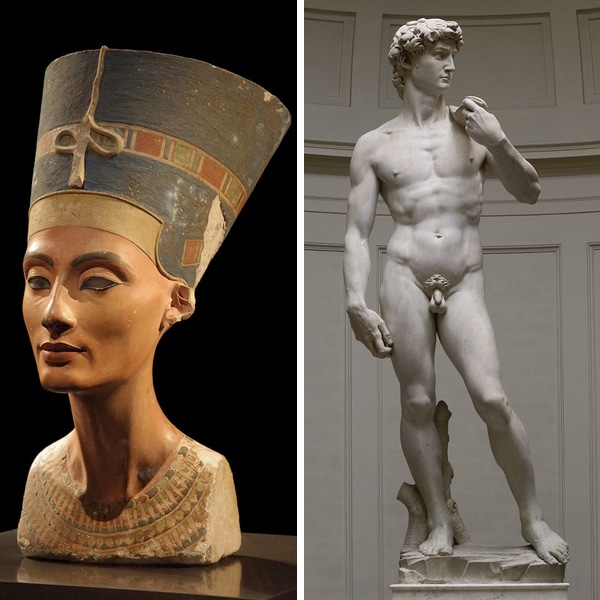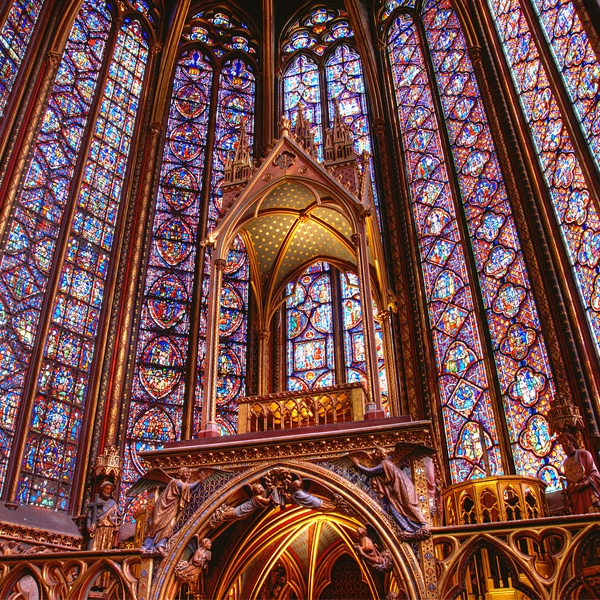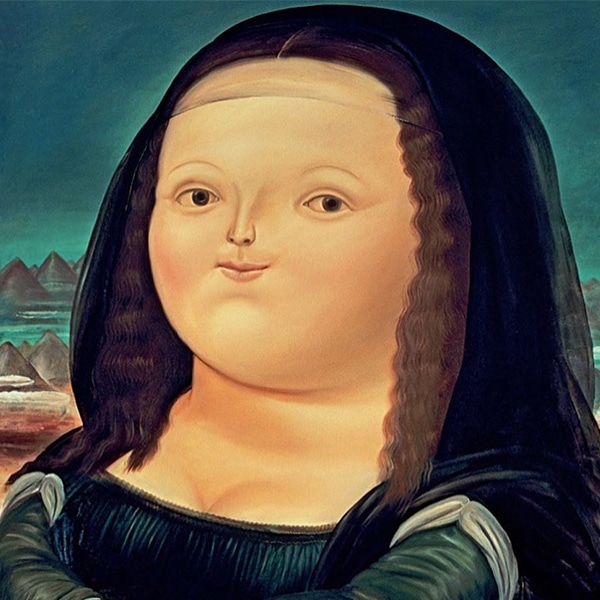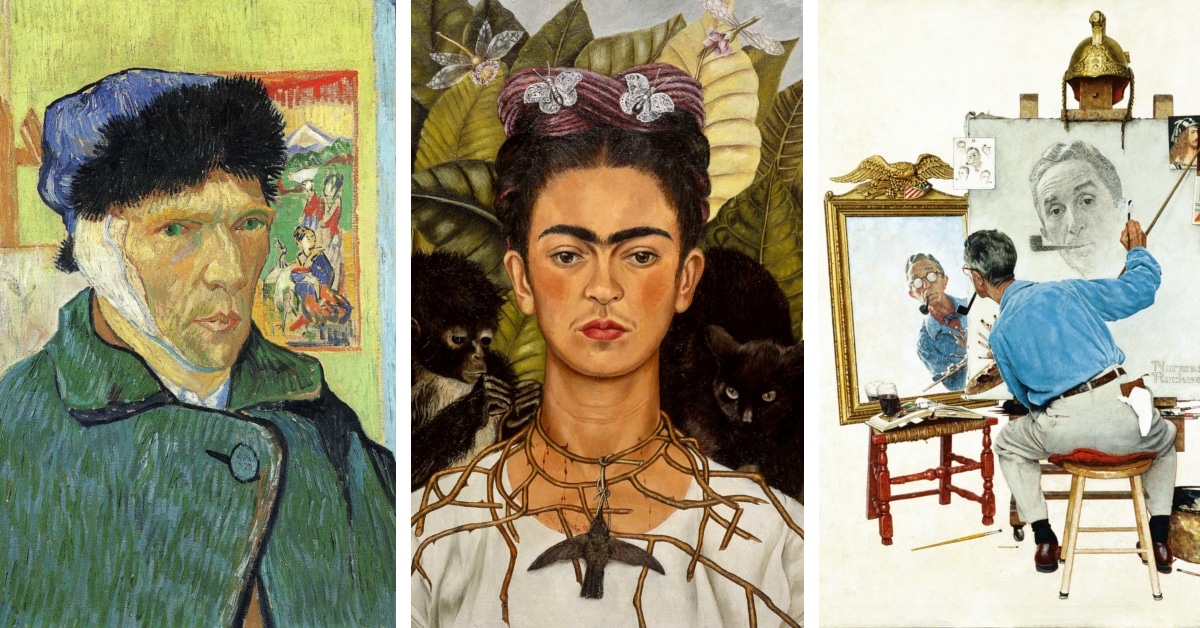
Throughout the course of art history, self-portraiture has remained a tried and true practice among leading artists. Transcending technique and style, self-portrayals are prevalent in every major movement, from the inspired Italian Renaissance to the Post-Modern and Contemporary periods. To illustrate the prevalence of these depictions, we have compiled a collection of the most famous self-portraits by the world's most well-known artists.
Through this comprehensive selection of self-portraits, we explore the curious custom of representing one's self through visual art. By offering an eclectic look at the work of well-known figures—spanning Rembrandt, Picasso, Frida Kahlo, Norman Rockwell, Claude Monet, and Vincent van Gogh—the enduring popularity of the self-portrait phenomenon becomes strikingly clear. And, while it may not seem as if age-old artists like Michelangelo and Raphael have much in common with modern masters like Andy Warhol and Yayoi Kusama, their like-minded interest in self-portraiture ultimately unites them—both as visual artists and as human beings.
See our selection of 28 well-known artists' most famous self-portraits below.
Albrecht Dürer
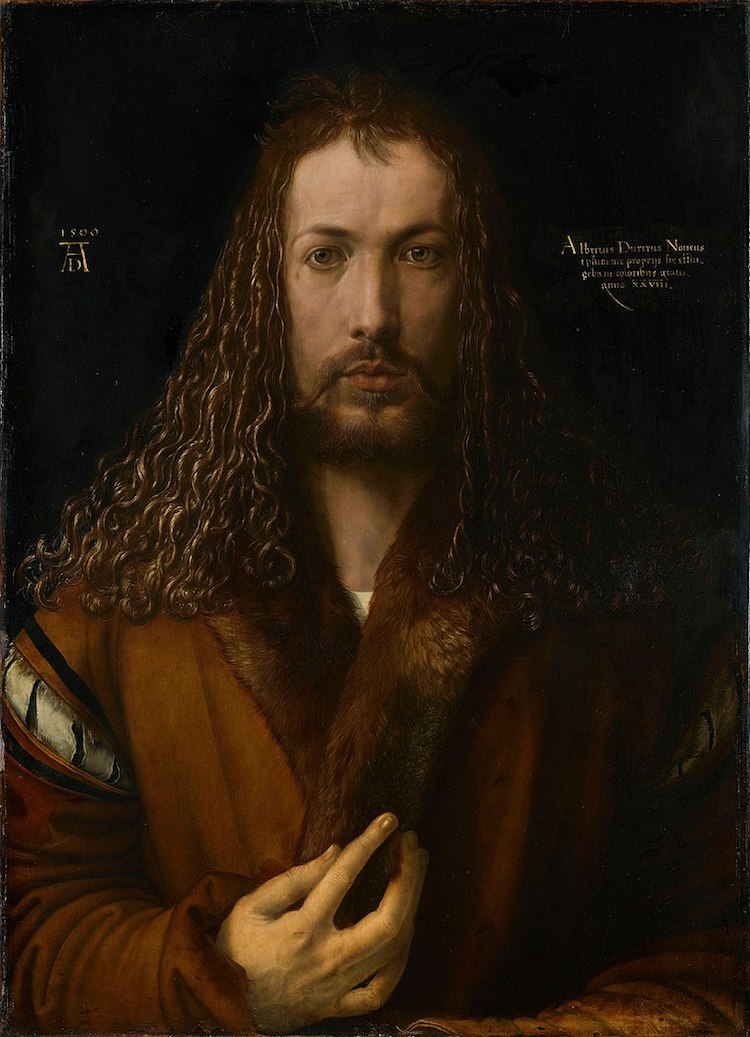
Albrecht Dürer, “Self-Portrait at 28,” oil on panel, 1500 (Photo: Wikimedia Commons, Public domain)
German printmaker Albrecht Dürer is renowned for his highly detailed woodcuts, etchings, and engravings, but in fact, the Northern Renaissance artist also created several important self-portraits throughout his life. Completed in the mid-15th century, Self-Portrait at 28 is significant because Dürer portrays himself in a way that's similar to depictions of Christ, indicating to the viewer that perhaps his artistic talents are God-given.
The painting now belongs to the Alte Pinakothek Museum in Munich, Germany.
Leonardo da Vinci
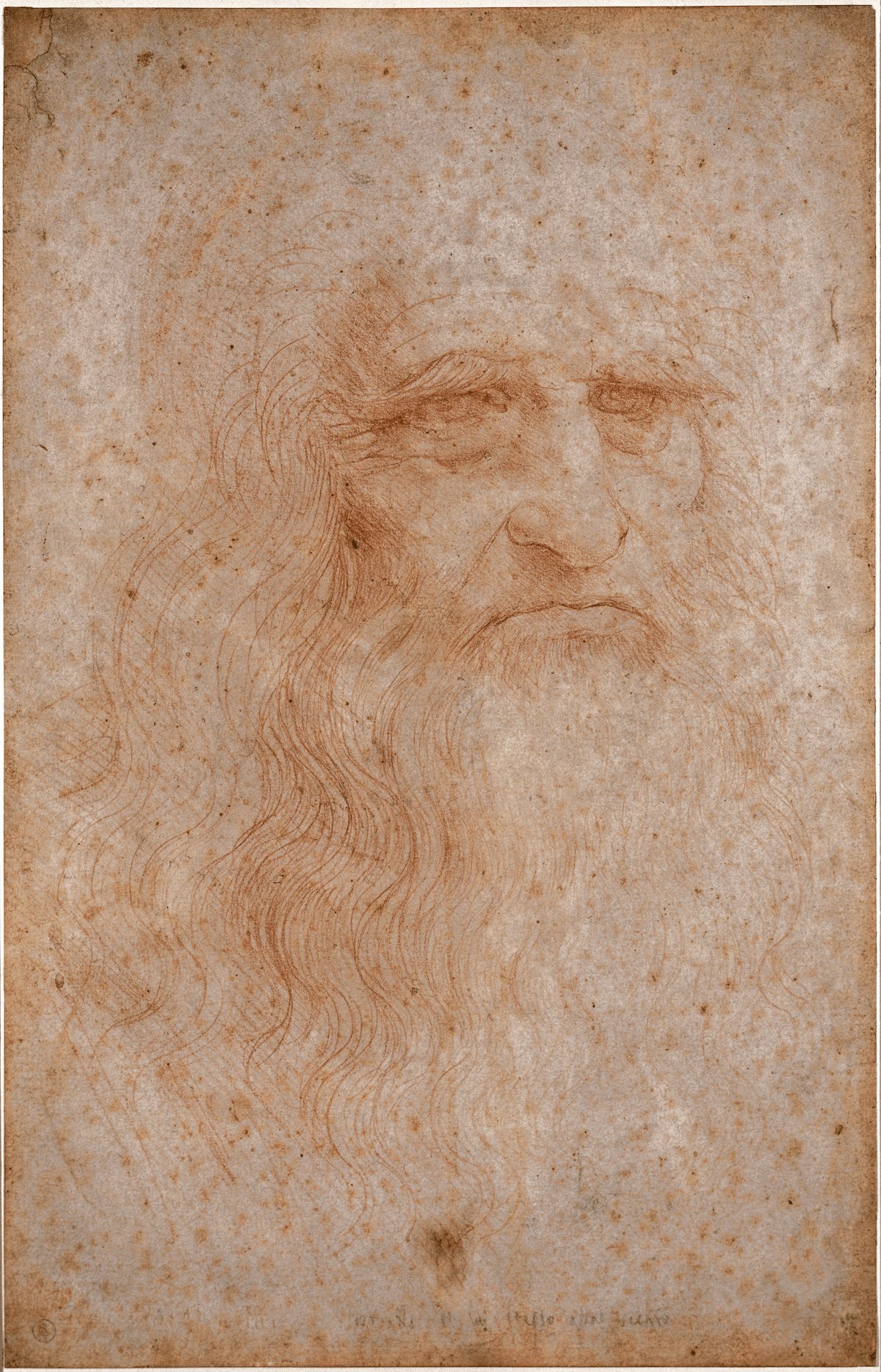
Leonardo da Vinci, “Portrait of a Man in Red Chalk,” red chalk on paper, c. 1512 (Photo: Wikimedia Commons, Public domain)
Created circa 1512, Leonardo da Vinci‘s Portrait of a Man in Red Chalk is widely believed to be a rare self-portrait of the master artist and inventor. As Leonardo was born in 1452, he would have been nearly 60 years old when he completed this work on paper.
The piece now permanently resides in Turin's Royal Library.
Rembrandt van Rijn
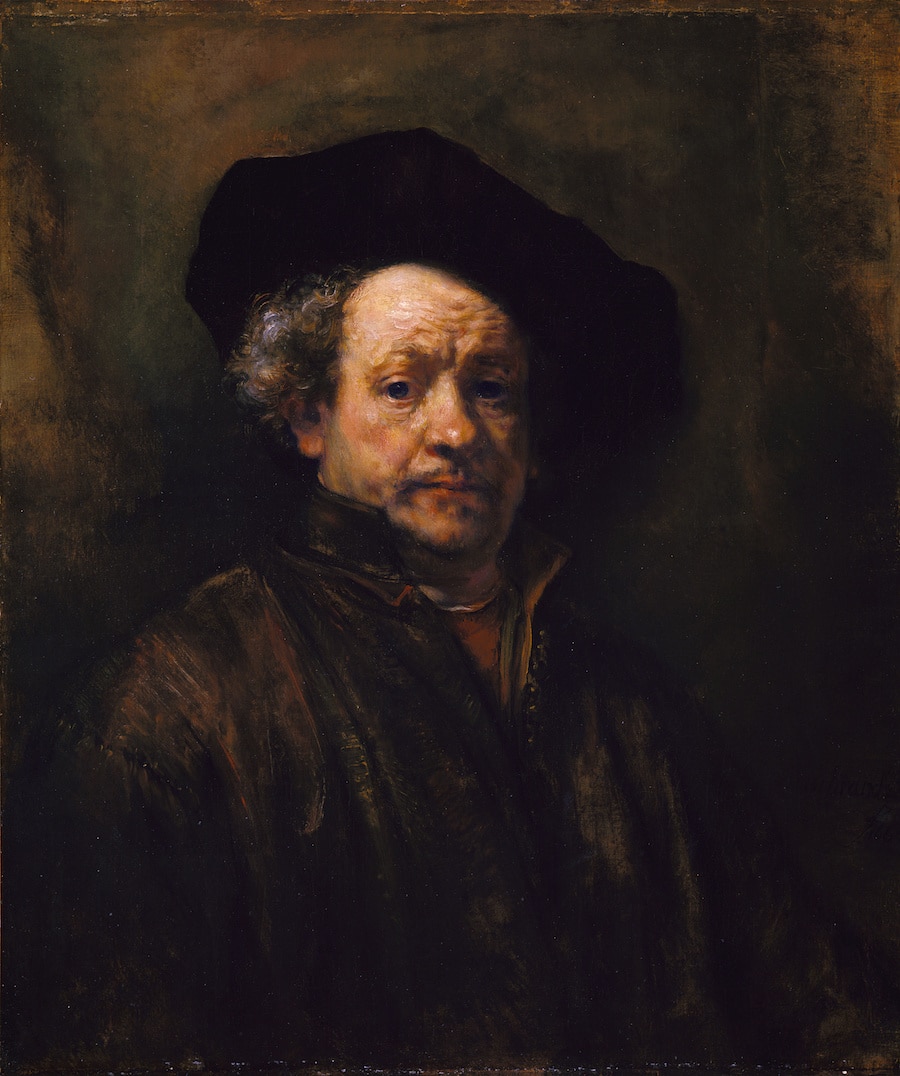
Rembrandt, “Self-portrait,” oil on canvas, 1660 (Photo: Wikimedia Commons, Public domain {PD-US-expired})
While there is certainly no shortage of Rembrandt self-portraits (over 90 are known), Self-Portrait perfectly captures the Dutch Golden Age painter's signature use of light, textured brushstrokes, and a somber color palette.
Rendered in 1660, the oil painting is now part of the Metropolitan Museum of Art‘s permanent collection.
Gustave Courbet
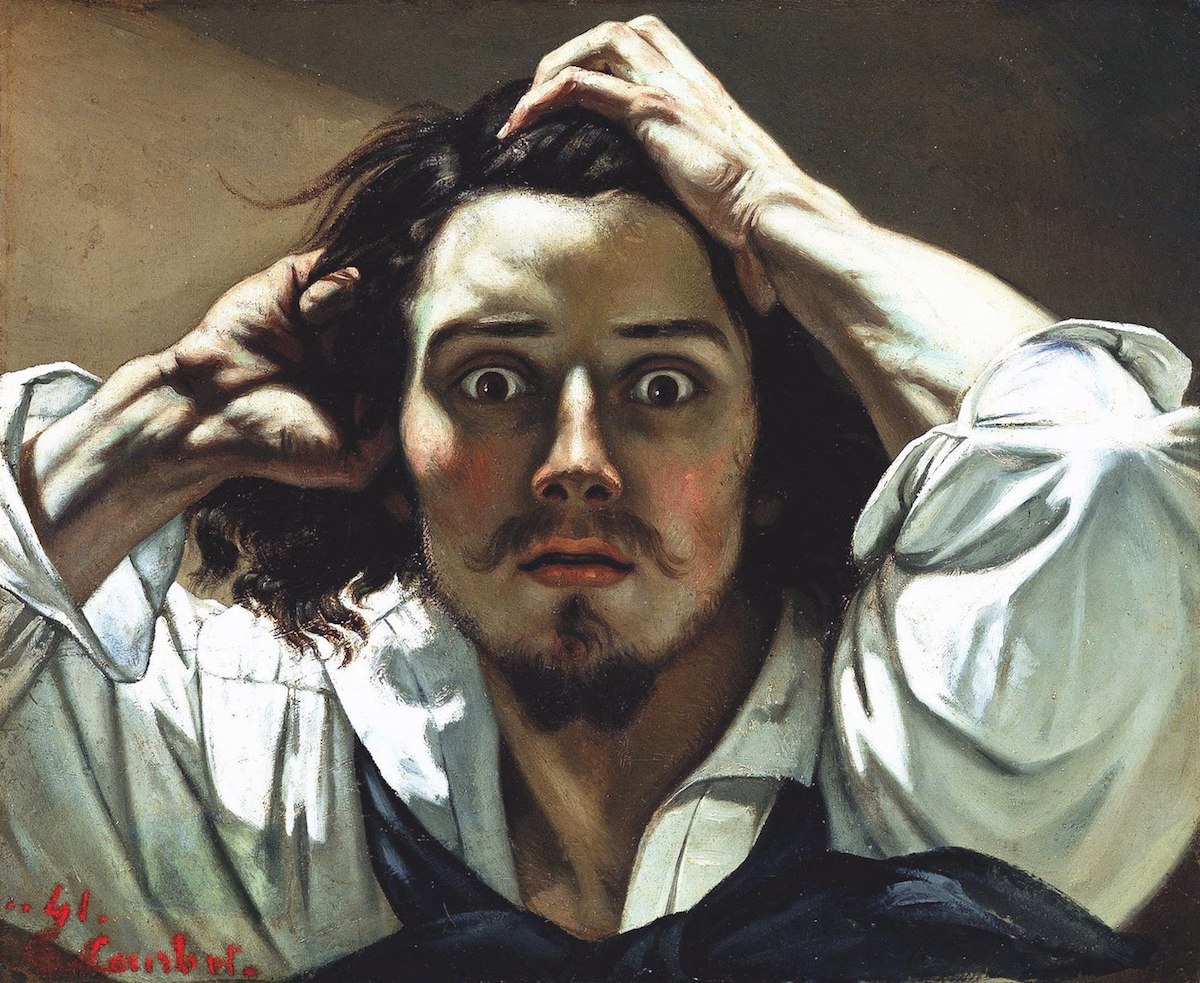
Gustave Courbet, “The Desperate Man,” oil on canvas, c. 1843 (Photo: Wikimedia Commons, Public domain {PD-US-expired})
Titled The Desperate Man, this piece by French realist painter Gustave Courbet remains his most well-known self-portrait. Completed in 1845, The Desperate Man combines elements of Romanticism—a style that was prominent until the middle of the 19th century—and Realism, a movement that would eventually be pioneered by Courbet.
Today, this iconic self-portrayal is part of a private collection.
Claude Monet
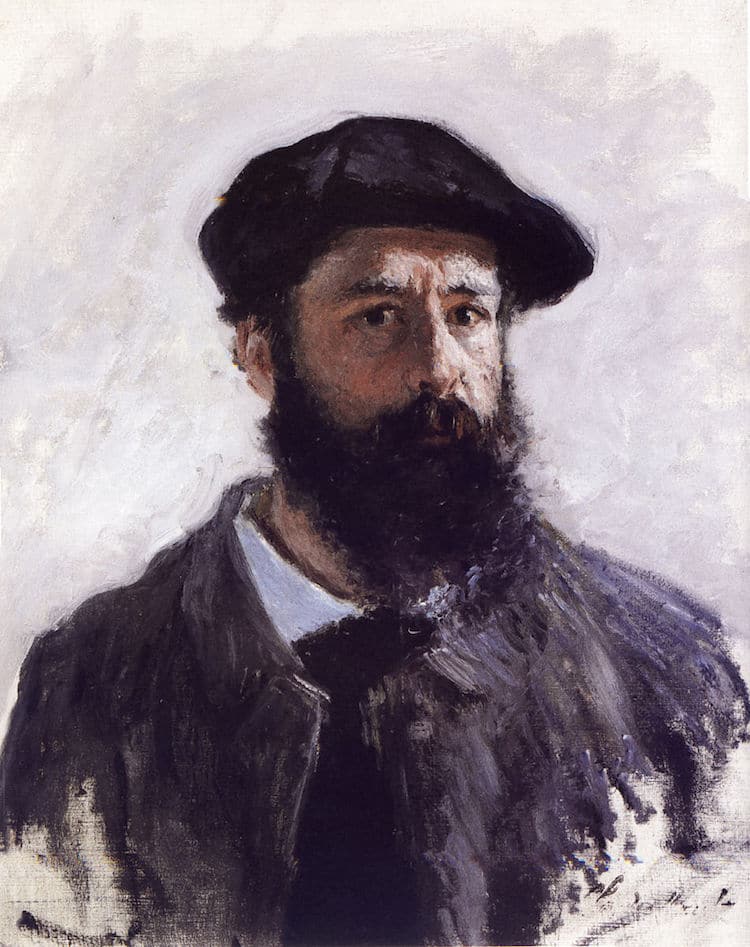
Claude Monet, “Self-portrait in Beret,” oil on canvas, 1886 (Photo: Wikimedia Commons, Public domain {PD-US-expired})
Featuring the Impressionist artist‘s signature beret and beard, this self-portrait of Claude Monet was painted in 1886. While Monet, renowned for his landscapes and water lilies, is not known for painting portraits of himself, he frequently depicted his wife, Camille. Self–Portrait with a Beret showcases Monet's distinctively blurred brushstrokes, compositional use of unpainted canvas, and expertly rendered balance between light and dark.
This oil painting is housed in a private collection.
Paul Gauguin

Paul Gauguin, “Self-Portrait with Halo,” oil on panel, 1889 (Photo: Wikimedia Commons, Public domain {PD-US-expired})
Self-Portrait with Halo and Snake by Paul Gauguin presents the French Post-Impressionist painter's characteristically colorful palette. Of over 40 self-portrayals, this 1889 piece remains Gauguin's most well-known due to its avant-garde composition and underlying religious themes, including apples and a snake.
This oil-on-wood painting can be found in the National Gallery of Art in Washington, D.C.
Vincent van Gogh

Vincent van Gogh, “Self-Portrait with Bandaged Ear,” oil on canvas, 1889 (Photo: Wikimedia Commons, Public domain {PD-US-expired})
Like many forefathers of the modern art movement, Dutch artist Vincent van Gogh dabbled in self-portraiture on numerous occasions. Though his collection of such portrayals features many iconic works, Self-Portrait with Bandaged Ear is perhaps his most famous. Painted shortly after the infamous incident in which the struggling artist cut off his own ear in 1889, this painting prominently features a bandage covering his wound.
Today, you can gaze upon the well-known work in London's Courtauld Gallery.
Paul Cézanne
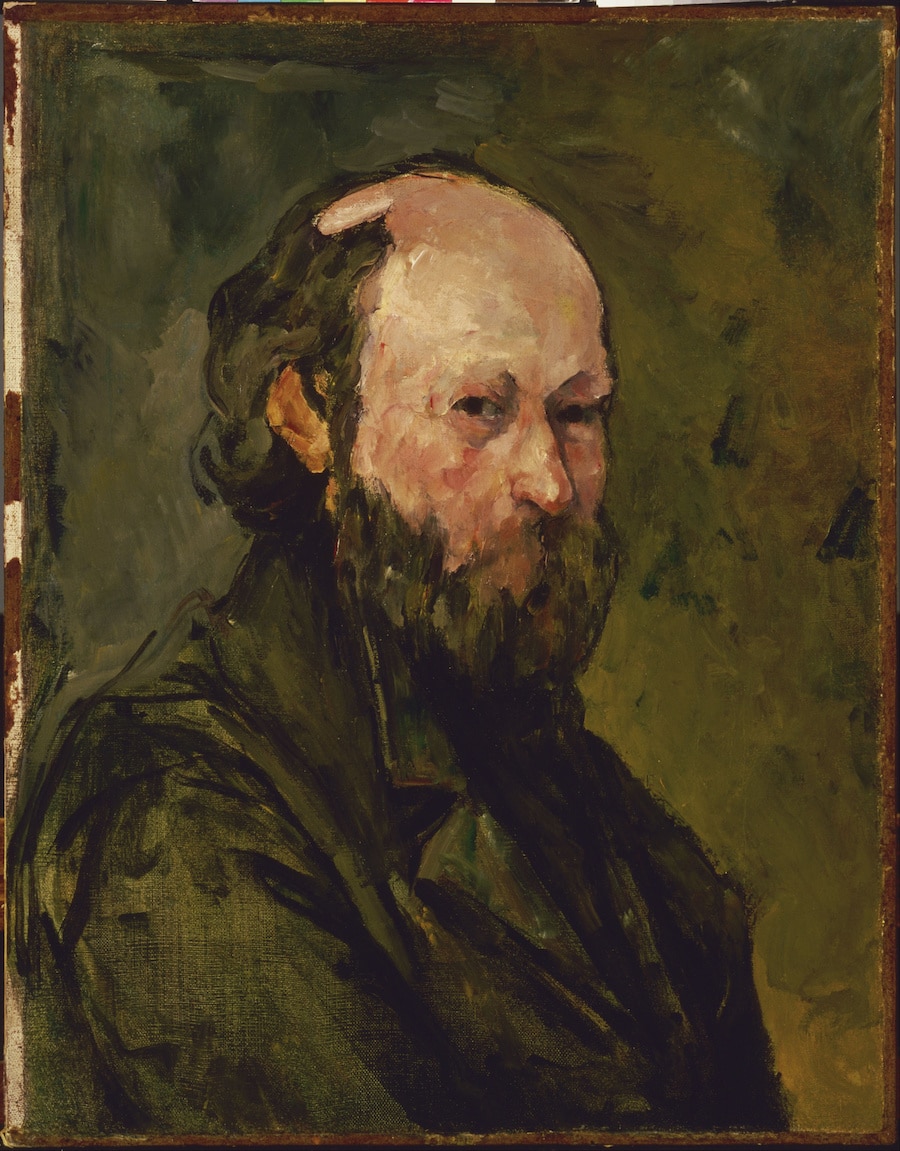
Paul Cézanne, “Self-Portrait,” oil on canvas, 1878-1880 (Photo: Wikimedia Commons, Public domain)
Though he is predominantly renowned for his mountainous landscapes and still lifes that play with perspective, French Post-Impressionist painter Paul Cézanne also often painted portraits. Sometimes, as in the case of Self-Portrait, he even depicted himself. Created from 1878 through 1880, this piece features the artist's distinctively painterly brushstrokes and unique use of color.
Now, this painting resides in the Phillips Collection in Washington, D.C.
Edvard Munch
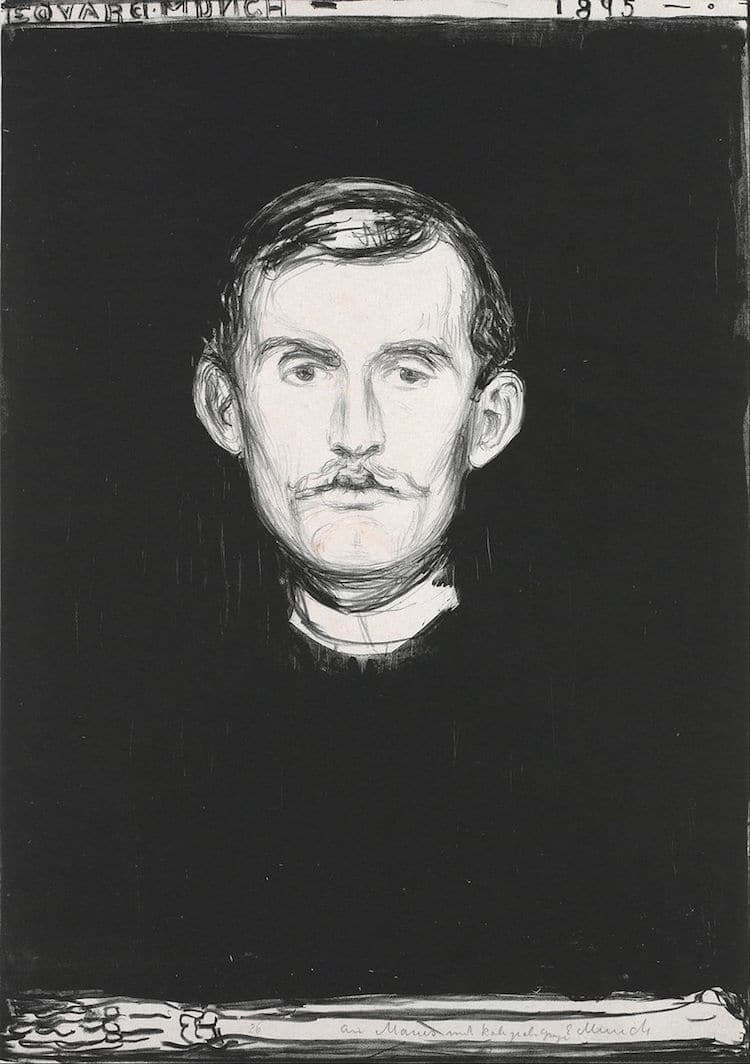
Edvard Munch, “Self-Portrait with Bandaged Ear,” lithograph, 1895 (Photo: Wikimedia Commons, Public domain)
Norwegian painter and printmaker Edward Munch is known for his masterpiece The Scream as well as dark and dreary Expressionist depictions, with Self-Portrait With Skeleton Arm (1895) being no exception. This peculiar piece was initially rendered in lithographic chalk and ink, and has been reprinted several times since its conception. In later reproductions, Munch even opted to black both out the skeletal arm and his signature.
Today, authentic prints of this piece can be found in numerous collections, including the British Museum.
Pablo Picasso
While Pablo Picasso‘s constantly changing style is evident in his entire oeuvre, it is perhaps most obvious when comparing his myriad self-portraits. Painted, drawn, and sculpted over the course of his career, his self-portrayals directly reflect the Spanish artist's evolution. Of all of these depictions, his Self-Portrait from 1907 most aptly captures his transition from Primitivism to Cubism, 2 of his most well-known periods.
This painting is currently housed by Prague's Narodni Gallery.
Frida Kahlo
Beloved Mexican artist Frida Kahlo has no shortage of self-portraits, each reflecting her identity and various moods, from The Two Fridas to Self-Portrait with Cropped Hair. Still, Self–Portrait with Thorn Necklace and Hummingbird from 1940 remains one of her most prized portrayals. The oil painting, depicting a necklace made of thorns that pierces Kahlo's neck, features several symbols and concepts prevalent throughout her portfolio, including foliage, wildlife, and suffering.
One of Kahlo's most unique portraits titled Diego on My Mind features her husband, Diego Rivera, another famous artist from Mexico, on her forehead.
This iconic work can be found in the Nickolas Muray Collection at the University of Texas.
Salvador Dali
Unsurprisingly, Spanish artist and Surrealist master Salvador Dalí took an unconventional approach to portraying himself with Soft Self-Portrait With Grilled Bacon. Painted in 1941, the piece depicts a single piece of bacon beside an organic, structureless shape adorned with a human face and propped up with crutches. Given its ambiguous appearance, one may wonder how such a face represents the artist. However, look closely and you'll spot Dalí's iconic, upturned mustache.
Today, this surreal self-portrait calls Catalonia's Dalí Theatre-Museum its home.
Marcel Duchamp
Like much of Marcel Duchamp‘s work, his Self-Portrait in Profile (1957) conveys the French artist's avant-garde approach to creating using a paper medium. Just one in a series of 137 pieces, this silhouetted depiction is experimentally composed of torn paper pasted on velvet-covered paperboard. While one may assume that the text written against the white backdrop is the artist's signature, it actually reads Marcel déchiravit, or “Marcel tore this quickly.”
This piece now belongs to the Metropolitan Museum of Art in New York City.
Norman Rockwell
American artist and illustrator Norman Rockwell is known for his delightful collection of Saturday Evening Post covers. On February 13, 1960—an impressive 44 years after Rockwell joined the magazine—the Saturday Evening Post ran a biographical piece on the artist. For the issue's cover, Rockwell was commissioned to depict himself, and, thus, he created this clever and comical Triple Self-Portrait.
The original oil painting of this cover can be found in the Norman Rockwell Museum in Stockbridge, Massachusetts.
Andy Warhol
A key figure in the Pop Art movement, American artist Andy Warhol boasts numerous well-known, popular pieces. Among his most famous works of art are his multi-colored, repeated silkscreen portraits. In addition to celebrities like Marilyn Monroe and Elizabeth Taylor, Warhol depicted himself in this style in his 1966 Self-Portrait.
This portrait belongs to the Museum of Modern Art in New York City.
Chuck Close
American photorealist Chuck Close gained prominence with his large-scale photographic portraits. In his aptly-titled Big Self-Portrait from 1968, the artist presents a realistically rendered acrylic painting of himself. Clad in thick-framed glasses and with a lit cigarette in his mouth, it is clear that the artist had a particular persona in mind when posing for the piece. “There’s no question,” Close states, “I had some attitude about the way I wanted to be perceived.”
Today, this piece is housed by the Walker Art Center in Minneapolis.
Cindy Sherman
View this post on Instagram
Master of disguise Cindy Sherman is celebrated for her self-portrait photography in which she assumes different characters. In Untitled #96, a photograph from the American artist's 1981 series Centerfold, Sherman is depicted dressed as a teenage girl.
In 2011, a print of this piece was purchased at auction for a record $3.89 million. At the time, it was the most expensive photograph ever sold, making Untitled #96 one of her most well-known works.
Prints of the photograph are available to view at the Museum of Modern Art in New York, the Art Institute of Chicago, and the Museum Boijmans van Beunigen in Rotterdam.
Jean-Michel Basquiat
American artist Jean-Michel Basquiat skillfully paired a street art style with Neo-Expressionist know-how to create a rich oeuvre of socially conscious art. In Self-Portrait from 1982, Basquiat employs acrylic paint and crayon to create a composition that combines naive, figurative representations with complete abstraction.
Like much of the artist's work, this portrait is now housed in a private collection.
Keith Haring
American artist and social activist Keith Haring is celebrated for his contributions to New York City's iconic street culture. Haring put a Pop Art spin on graffiti, as evident in his untitled self-portrait from 1985. Conveying a cartoon-like aesthetic and playful style, this portrait embodies Haring's graphic approach to iconography.
This piece is now part of a private collection.
Lucian Freud
Reflection (1985), a self-portrayal by British portrait painter Lucian Freud, conveys the artist's raw and realism-inspired style. Featuring thickly applied paint and a purely figurative focus, the oil painting captures Freud's distinctive and recognizable approach to portraiture.
Reflection belongs to a private collection.
Gerhard Richter
The comprehensive portfolio of German artist Gerhard Richter is esteemed for its wide range of styles. In addition to abstract works and “overpainted” photographs, he also produces portraits that, though painted, almost appear to be blurred photos. A key example of a well-known work from this genre is Selbstportrait (1996), a self-portrait that vaguely presents the artist as he looks toward the ground.
This piece is part of the Flowerman Collection.
Louise Bourgeois
Louise Bourgeois, Self Portrait, 2007 #womensart pic.twitter.com/ndswTu0vKf
— #WOMENSART (@womensart1) June 22, 2018
French-American artist Louise Bourgeois is predominantly recognized as a sculptor and installation artist. However, in addition to her 3-dimensional creations, the artist also produced paintings, drawings, and prints. Bourgeois was not associated with any particular artistic movement or group, though many of her masterpieces—like this curious Self-Portrait (2007) in which the artist portrays herself as a cat—suggest Surrealist influences.
This feline-themed self-portrait now resides in a private collection.
Yayoi Kusama
Japanese creative Yayoi Kusama is one of the most sought-after contemporary artists. While her interactive installations and contemporary pumpkins often merit her the most praise, she is also a skilled painter, as apparent in her series of self-portraits. Rendered in acrylic paint, this portrayal from 2010 captures Kusama's characteristically bright color palette, penchant for patterns, and playful style.
This piece is housed in a private collection.
In addition to more traditional portraiture, many artists throughout history have opted to instead include themselves in unexpected compositions. See some of these sneaky self-portraits below.
Jan van Eyck
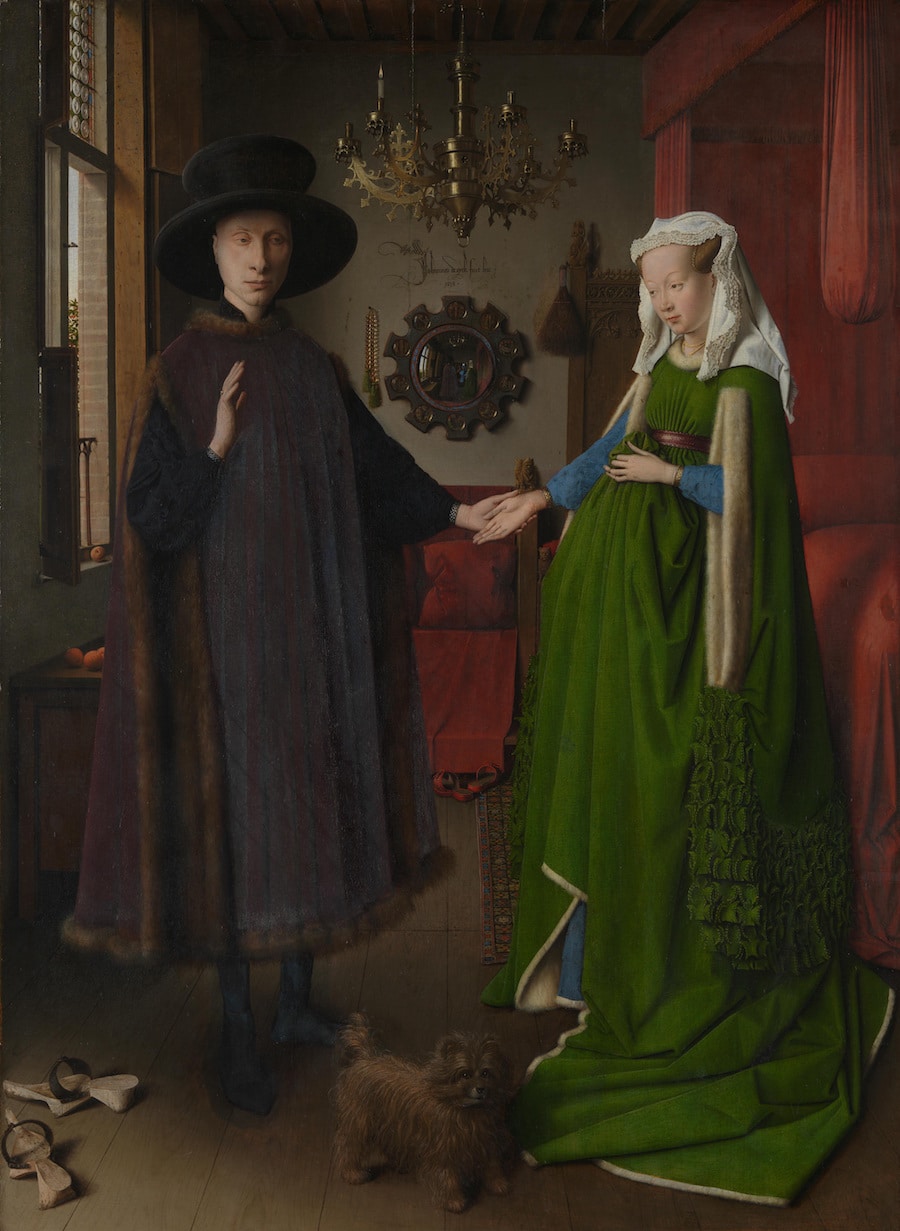
Jan van Eyck, “The Arnolfini Portrait,” oil on panel, 1434 (Photo: Wikimedia Commons, Public domain)
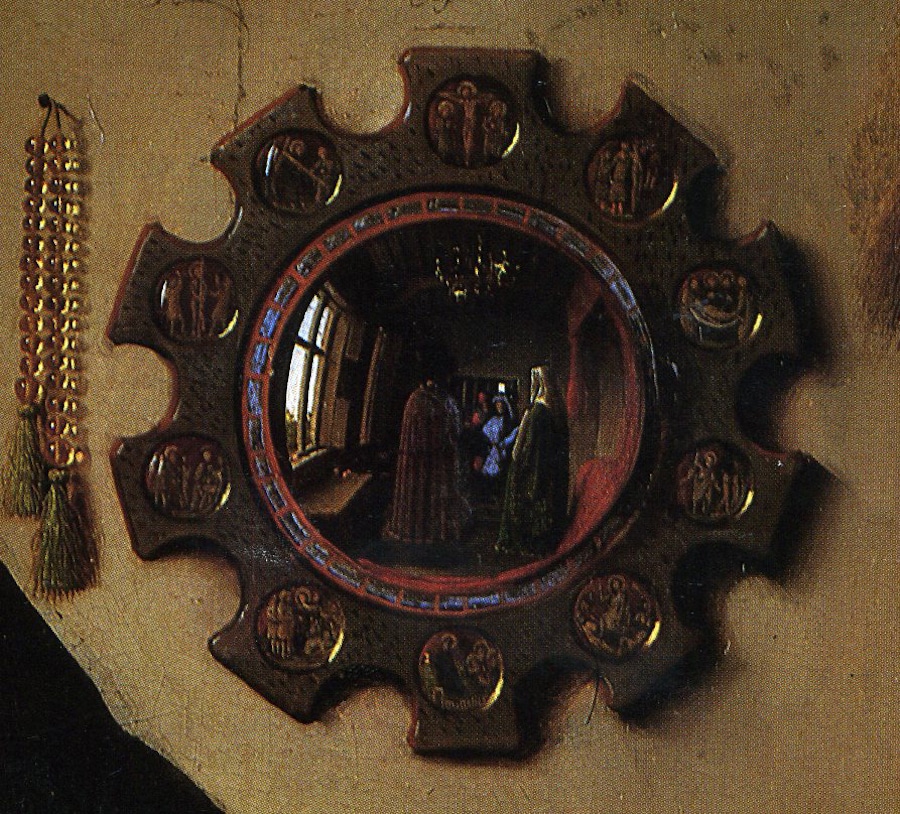
Jan van Eyck, “The Arnolfini Portrait,” oil on panel, 1434 (Photo: Wikimedia Commons, Public domain)
In his most well-known painting, The Arnolfini Portrait (1434), Early Netherlandish painter Jan van Eyck presents wealthy Italian merchant Giovanni di Nicolao Arnolfini and his first wife, Costanza Trenta. On the surface, the piece appears to be a simple double portrait. However, a closer look reveals that, in the convex mirror in the center of the composition, van Eyck's discreet reflection is visible.
This painting can be found in London's National Gallery.
Raphael
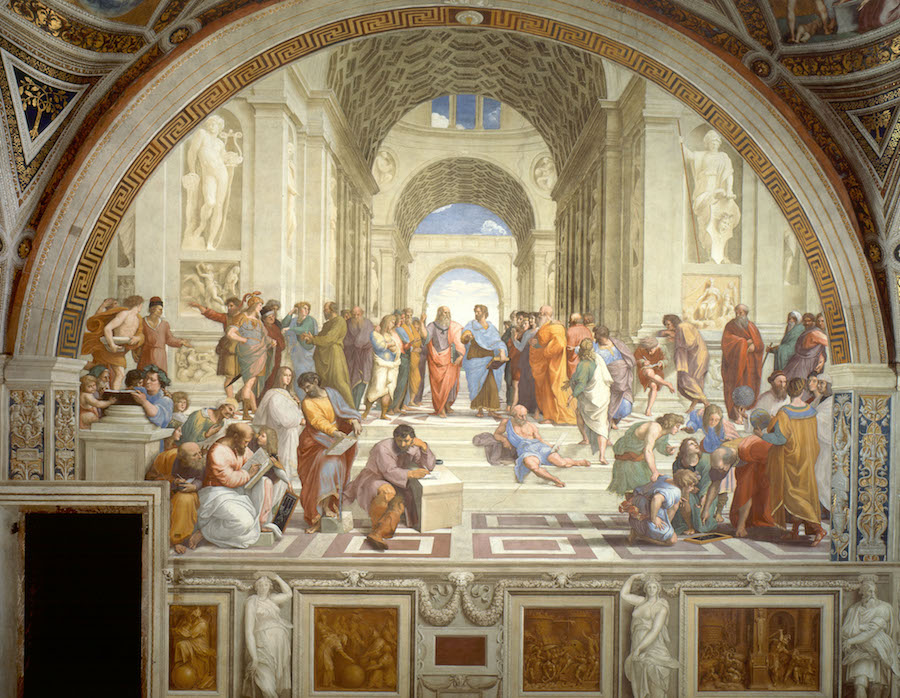
Raphael, “The School of Athens,” fresco, 1509-1511 (Photo: Wikimedia Commons, Public domain)
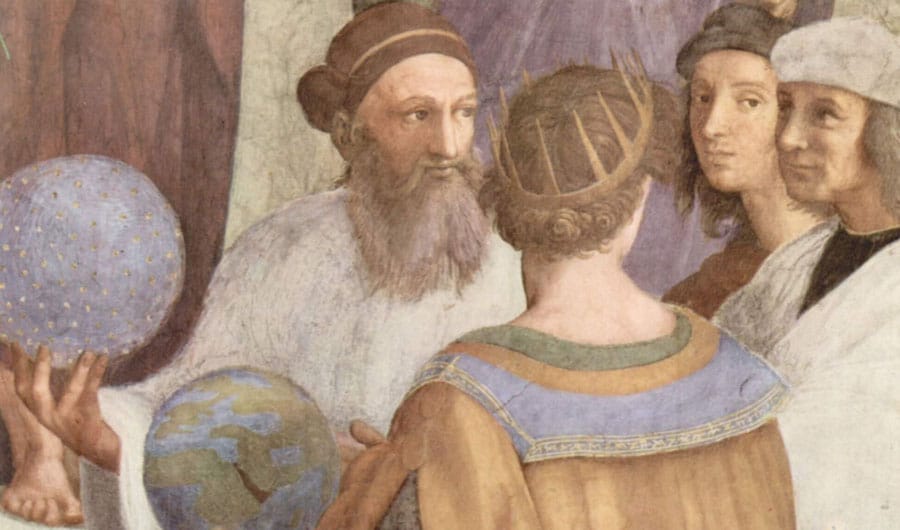
Raphael, “The School of Athens,” fresco, 1509-1511 (Photo: Wikimedia Commons, Public domain)
The School of Athens, a famous fresco by Italian Renaissance painter Raphael, is often celebrated for its depiction of each and every great ancient Greek philosopher from antiquity. In addition to this impressive collection of figures, Raphael also opted to include himself in the lower-left corner of the large-scale composition. He can be seen staring straight at the viewer as he stands next to Ptolemy.
This fresco is located in the Apostolic Palace in Vatican City.
Michelangelo
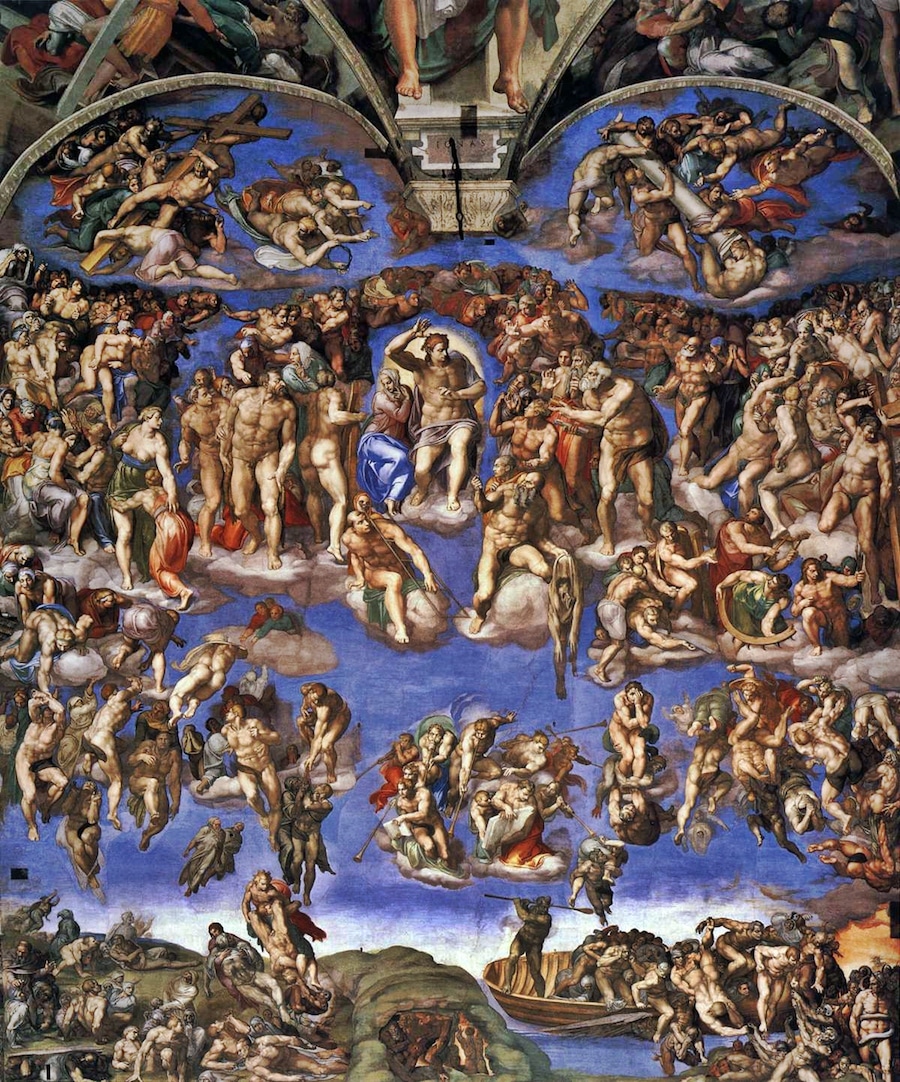
Michelangelo, “The Last Judgment,” fresco, 1536-1541 (Photo: Wikimedia Commons, Public domain {PD-US-expired})
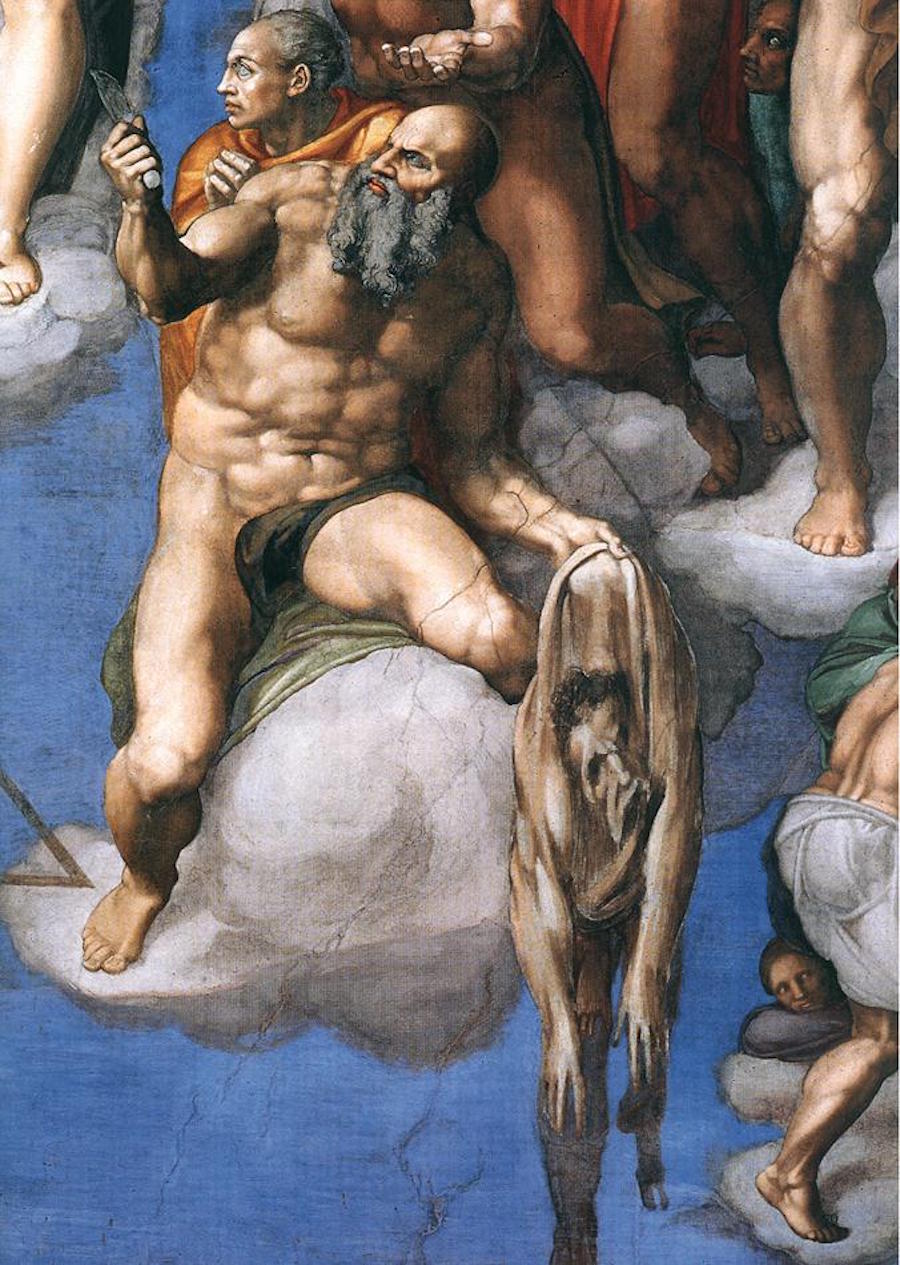
Michelangelo, “The Last Judgment,” fresco, 1536-1541 (Photo: Wikimedia Commons, Public domain {PD-US-expired})
In The Last Judgment, a fresco found in the Sistine Chapel, Italian master Michelangelo fills a frantic composition with numerous biblical characters and saints accompanied by their attributes. One noteworthy figure is St. Bartholomew, who—as in many Christian depictions—is seen holding his own skin. In a fascinating twist, the face portrayed on the flesh is widely believed to be a self-portrait of the artist himself!
The Last Judgment is in the Sistine Chapel in the Vatican.
Diego Velázquez

Diego Velázquez, “Las Meninas,” oil on canvas, 1656-7 (Photo: Wikimedia Commons, Public domain {PD-US-expired})

Diego Velázquez, detail of “Las Meninas,” oil on canvas, 1656-7 (Photo: Wikimedia Commons, Public domain {PD-US-expired})
Las Meninas (“The Ladies-in-Waiting”), a 1656 painting by Spanish Golden Age artist Diego Velázquez, portrays Madrid's royal court. Velázquez has cleverly placed himself behind the Infanta Margarita and her handmaids, all dressed in elaborate costumes. He is shown standing at his easel with his palette and brushes in hand.
Las Meninas is part of the Museo Nacional del Prado‘s permanent collection.
Henri de Toulouse-Lautrec

Henri de Toulouse-Lautrec, “At the Moulin Rouge,” oil on canvas, 1892-5 (Photo: Wikimedia Commons, Public domain)
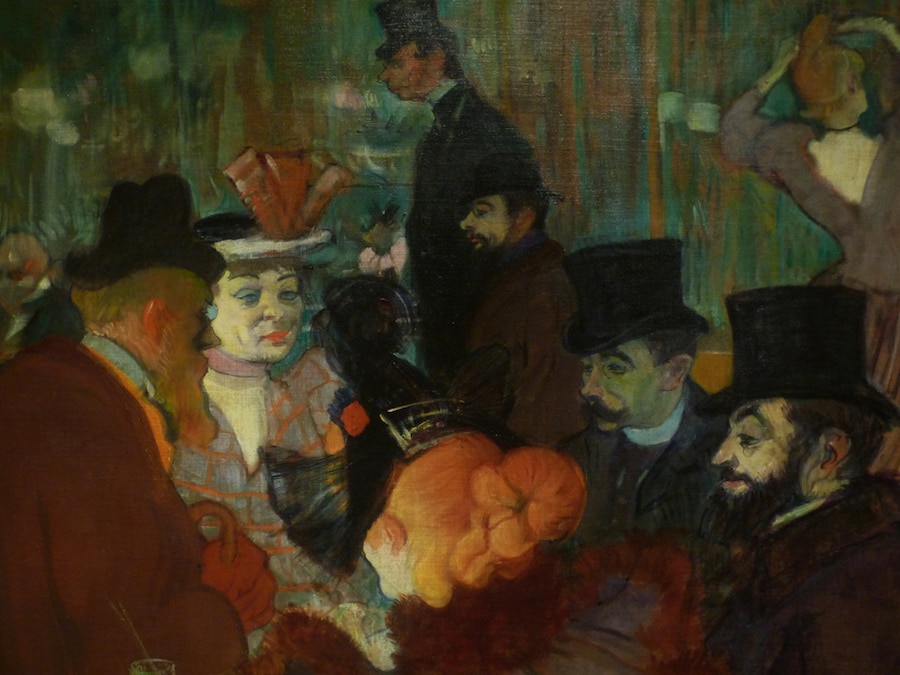
Henri de Toulouse-Lautrec, detail of “At the Moulin Rouge,” oil on canvas, 1892-5 (Photo: Wikimedia Commons, Public domain)
In Au Moulin Rouge (“At the Moulin Rouge”) French Belle Époque painter Henri de Toulouse-Lautrec offers a glimpse of nightlife during turn-of-the-century Paris. As a frequent visitor of the city's nightclubs, it is fitting that Toulouse-Lautrec inserted himself into the background of this piece. He can be seen walking with Gabriel Tapié de Céleyran, his cousin and doctor.
This painting can be found at the Art Institute of Chicago.
This article has been edited and updated.
Related Articles:
30 Famous Paintings From Western Art History Any Art Lover Should Know
16 of the Greatest Painters of All Time Whose Influences Live On Today
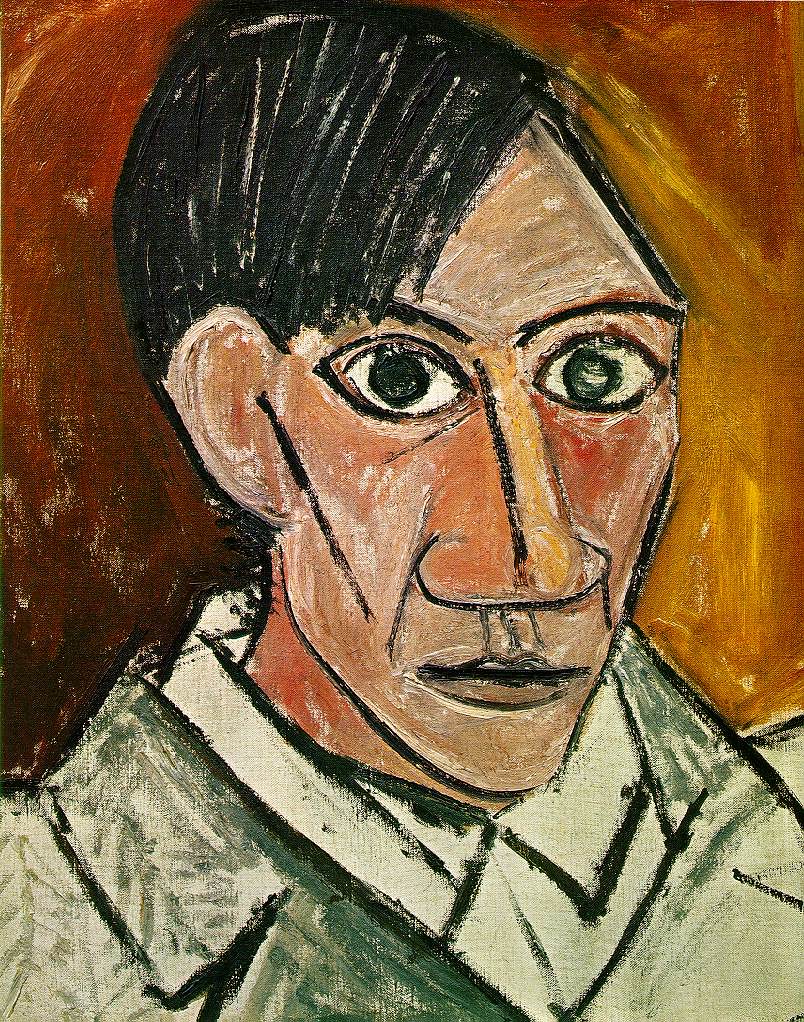
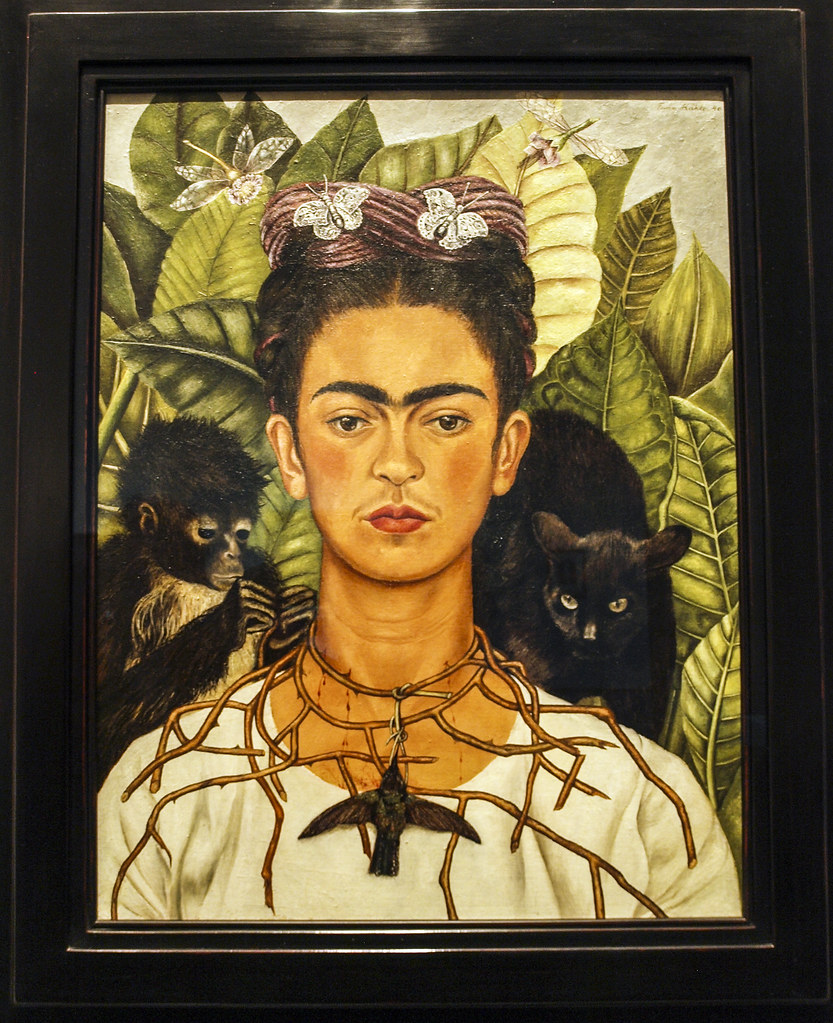
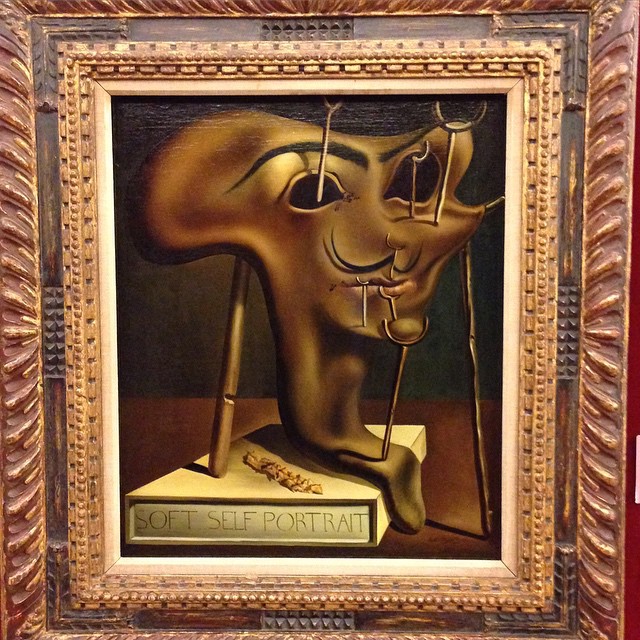
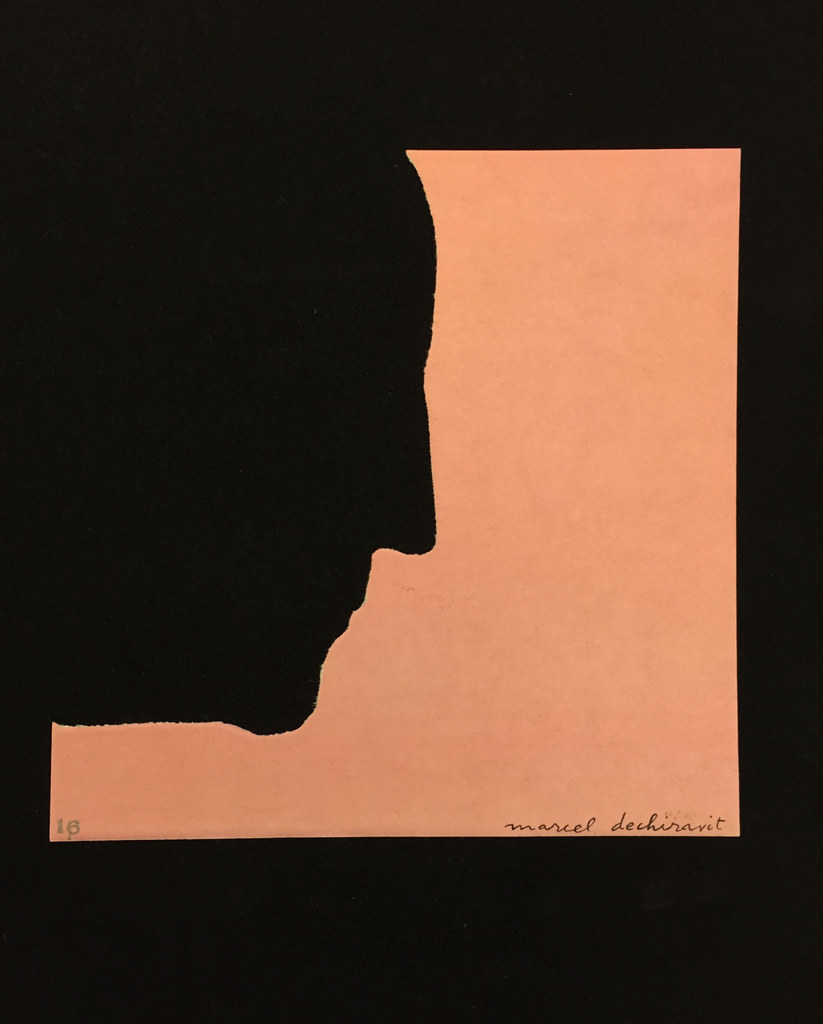
![Norman Rockwell - Triple Self-Portrait [1960]](https://live.staticflickr.com/1133/5131320776_fb5d1f3a2f_b.jpg)

